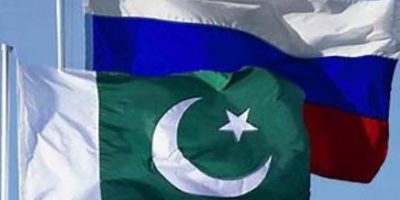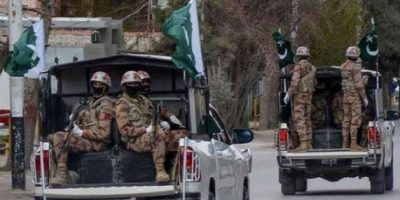Qatar’s potential role in facilitating Pak-India dialogue on Kashmir discussed

Islamabad, 4 Dec /DNA/ – Exploring every possible avenue is critical for the Kashmiri freedom struggle leadership and activists to gather support from the world community, including Qatar’s economic and diplomatic clout, which can help provide a potential channel for meaningful dialogue among the stakeholders. This suggestion holds water in the existing regional and global scenario where Qatar is emerging as an important regional player, especially after successfully facilitating the US-Taliban talks in recent years.
This idea was extensively debated during a meeting of the IPS’ Working Group on Kashmir (IPS-WGK), a body of experts and opinion leaders on Kashmir affairs meeting regularly at the Islamabad-based think tank for the last two years after the illegal revocation of the special constitutional status of Indian Occupied Jammu & Kashmir by the BJP-led Delhi regime on 5 August 2019.
Ambassador (r) Syed Abrar Hussain, vice chairman, IPS chaired the session, which was addressed as keynote speaker by Dr Farhan Mujahid Chak, a Kashmiri-Canadian scholar and associate professor, international relations, Qatar University, Doha.
Irshad Mahmood, director-general, Jammu & Kashmir Liberation Cell (JKLC); Ambassador (r) Tajammul Altaf, senior research associate at IPS; Advocate Nasir Qadri, international law researcher and founder, Legal Forum for Oppressed Voices of Kashmir (LFOVK); Professor Dr Shaheen Akhtar, National Defence University (NDU), Mir Tahir Masood and Hasan al-Banna, officials of the All Parties Hurriyat Conference (APHC), and Dr Waleed Rasool, Kashmiri scholar and activist attended the meeting. Sabur Ali Syed, senior research officer at IPS, moderated the session.
Dr Chak viewed Qatar as one of the few countries that can help cultivate an atmosphere of talks between the two nuclear-armed neighbors to clear the prevalent air of antagonism and help resolve the Kashmir dispute.
However, other discussants believed that unless the indigenous, legitimate armed struggle for Kashmir’s right of self-determination does not reach a critical level, any talk of dialogue between India and Pakistan or a mediatory role by a third party would be useless. They advocated for both kinetic and non-kinetic support to Kashmiri freedom activists within the J&K region and across the world, especially potential diplomatic capital such as Doha.
They warned that the Bharatiya Janta Party (BJP) would further harden its stance over Kashmir and disregard any such mediation offer by any country, especially as it intends to install a Hindu chief minister in the IOJK once the delimitation process comes to an end.
Ambassador (r) Syed Abrar Hussain observed in his concluding remarks that Pakistan has always welcomed any mediation offer to resolve the chronic dispute. In contrast, India repeatedly backs out of talks on one pretext or another.
Related News

Moscow-Islamabad link explores global challenges
MOSCOW, FEB 25: /DNA/ – The Moscow—Islamabad Media Forum will be held on February 27,Read More

34 India-backed terrorists killed in KP, Balochistan ops over last few days: ISPR
Security forces killed 34 India-sponsored terrorists in a series of high-tempo intelligence-driven operations carried outRead More


Comments are Closed